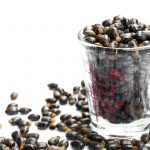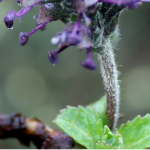Holistic Use of CBD for Acne
Integrative Cannabis
Rob Streisfeld, NMD
Don’t judge a book by its cover. I am sure you’ve heard this phrase many times, but if the cover being referred to is the health of a person’s skin, you might actually understand that what’s inside has a direct relationship to the outside.
Having suffered from acne myself when I was younger, this is a personal issue for me. I was unaware that my digestive issues and eating habits impacted my skin. I tried all sorts of creams and topical treatments, but it was only when I healed my gut that I started to see real changes to my skin. (I also saw dramatic improvements in sleep, energy, and mood.)
A greater acceptance of natural, plant-based options has helped shift the patient/consumer away from pharmaceuticals and synthetics, and toward more natural solutions. Naturopathic doctors have long recognized correlations between digestive health, liver function, the lymphatic system, etc, and the health and appearance of a person’s skin. Conditions such as acne vulgaris, rosacea, psoriasis, and eczema require a multi-faceted approach. Dietary changes, detoxification programs, and supplements are fairly common practice, along with the use of assorted topical products. Over the past decade we have seen an increased understanding of how beneficial microorganisms, aka probiotics, positively impact a wide range of health conditions. While usually ingested, probiotics are also increasingly being added to topical products to treat skin conditions.
Cannabinoids & the Skin
Perhaps the most recent phenomenon, exciting nearly all facets of the healthcare industry including gastrointestinal (GI) health and aesthetics/skin care, involves the utilization of Cannabis-derived compounds. We all have an EndoCannabinoid System (ECS) with receptors throughout the body. Endocannabinoids such as anandamide and 2-AG (2-arachidonoylglycerol) are produced by the body, helping to maintain homeostasis. Plant-derived (or “phyto” cannabinoids) can assist. Over 100 different cannabinoids have been identified in the Cannabis plant, with the most researched compounds thus far being cannabidiol (CBD) and delta-9-tetrahydrocannabinol (THC).
Beauty does begin from within. However, similar to probiotics, when choosing to incorporate phytocannabinoids such as CBD into a skin care protocol, I recommend a combination of topical and ingestible delivery systems.
Topical Administration
Let’s start on the surface. Herbal extracts have long been used topically to treat skin afflictions. Alkaloids, salicylic acid, enzymes, and other various plant-derived chemical compounds have been shown to be effective for a variety of conditions. Even tobacco leaves and their juice have a history of being applied therapeutically to the skin, and might even be useful in treating basal cell carcinoma.1 Current research on the use of Cannabis compounds for skin conditions shows tremendous promise. One example, in particular, was a research presentation that caught my attention while attending the International Cannabinoid Research Society’s 24th annual symposium in Baveno, Italy, in 2014. Maybe it was the title that grabbed me: “Weed Against Zit?” – Exploration of the Mechanisms of the Complex Anti-Acne Actions of Cannabidiol.”2 To summarize the information presented, the researchers’ findings expanded on earlier published research demonstrating that CBD has anti-inflammatory, anti-proliferative, and lipostatic actions on sebocytes, thereby supporting skin health and reducing acne.3 With my personal experience battling acne, and having tried a plethora of both pharmaceutical and natural creams, lotions, and ointments, I was truly excited by these findings. However, in addition to my own health experiences and challenges, my naturopathic training reminds me that most illness and dis-ease begins in the gut.
Oral Administration
When we dive deeper, a significant number of cannabinoid receptors come into view, specifically CB1, which are found inside the digestive system. Most people by now recognize that Cannabis not only impacts appetite, ie, “the munchies,” but can also help treat a wide range of serious digestive issues. Animal research suggests that CBD, in particular, appears to interact/support the parasympathetic nervous system, helping to inhibit hypermotility in both the small and large intestine.4
From inflammatory bowel disease to functional disorders such as irritable bowel syndrome, bloating, and intestinal discomfort, CBD that reaches the GI system appears to offer a wide range of benefits. CBD helps reduce inflammation, supports immune function, and positively interacts with probiotics, thus helping to maintain a healthy microbiome and reduce gut permeability.5
In addition to CBD, don’t forget to incorporate high-quality probiotics, balanced essential fatty acids, digestive enzymes, and anti-inflammatory herbs such as Curcuma longa (turmeric), Zingiber (ginger), and Boswellia (frankincense)
Conclusion
Though still early in application, naturally occurring Cannabis compounds like CBD (preferably from full/broad-spectrum extracts vs isolates) offer an exciting addition to our practitioner “tool belt.” When addressing skin health issues, it is important to remember to not only treat the obvious symptoms, but to also continue searching for the underling issues or cause of imbalances, which often originate in the GI system. As naturopathic physicians, we have the distinct advantage from our training of treating a patient/client in a holistic manner, utilizing Cannabis and other natural remedies in the most effective ways possible.
References:
- Charlton A. Medicinal uses of tobacco in history. J R Soc Med. 2004;97(6):292-296.
- Oláh A, Ambrus L, Szöllősi AG, et al. “Weed Against Zit?” – Exploration of the Mechanisms of the Complex Anti-Acne Actions of Cannabidiol. [Presentation] Oral Session 11: Beyond THC: Cannabidiol and Other Components. 24th Annual Symposium of the International Cannabinoid Research Society. Baveno, Italy. June 28-July 2, 2014. Available at: http://www.icrs.co/SYMPOSIUM.2014/ICRS2014.PROGRAMME.pdf. Accessed February 20, 2019.
- Biro T, Oláh A, Tóth BI, et al. Cannabidiol as a Novel Anti-Acne Agent? Cannabidiol Inhibits Lipid Synthesis and Induces Cell Death in Human Sebaceous Gland-Derived Sebocytes. [Presentation] Oral Session 5: Phytocannabinoids. 19th Annual Symposium of the International Cannabinoid Research Society. Pheasant Run, St Charles, IL. July 7-11, 2009. Available at: http://www.icrs.co/SYMPOSIUM.2009/ICRS.2009.PROGRAMME.FINAL.pdf. Accessed February 20, 2019.
- Pagano E, Capasso R, Piscitelli F, et al. An Orally Active Cannabis Extract with High Content in Cannabidiol attenuates Chemically-induced Intestinal Inflammation and Hypermotility in the Mouse. Front Pharmacol. 2016;7:341.
- Abalo R, Vera G, López-Pérez AE, et al. The gastrointestinal pharmacology of cannabinoids: focus on motility. Pharmacology. 2012;90(1-2):1-10.
 Rob Streisfeld, NMD, is a passionate consumer advocate and educator with over 15 years of Natural Health and Natural Products industry experience. “Doc Rob,” as widely known, is a doctor of naturopathic Medicine (SCNM/’02) and certified natural food chef. Over the past decade he has helped to identify and expand numerous key health categories. His recent passion is rooted in Cannabis, cannabinoids, and the benefits they offer, as he leads the plant medicine vertical at BeyondBrands (www.BeyondBrands.org). Doc Rob authored The Cannabis Conundrum, and he hosts a podcast, “Concierge for Better Living,” on iHeartRadio, Spotify, and other platforms.
Rob Streisfeld, NMD, is a passionate consumer advocate and educator with over 15 years of Natural Health and Natural Products industry experience. “Doc Rob,” as widely known, is a doctor of naturopathic Medicine (SCNM/’02) and certified natural food chef. Over the past decade he has helped to identify and expand numerous key health categories. His recent passion is rooted in Cannabis, cannabinoids, and the benefits they offer, as he leads the plant medicine vertical at BeyondBrands (www.BeyondBrands.org). Doc Rob authored The Cannabis Conundrum, and he hosts a podcast, “Concierge for Better Living,” on iHeartRadio, Spotify, and other platforms.










